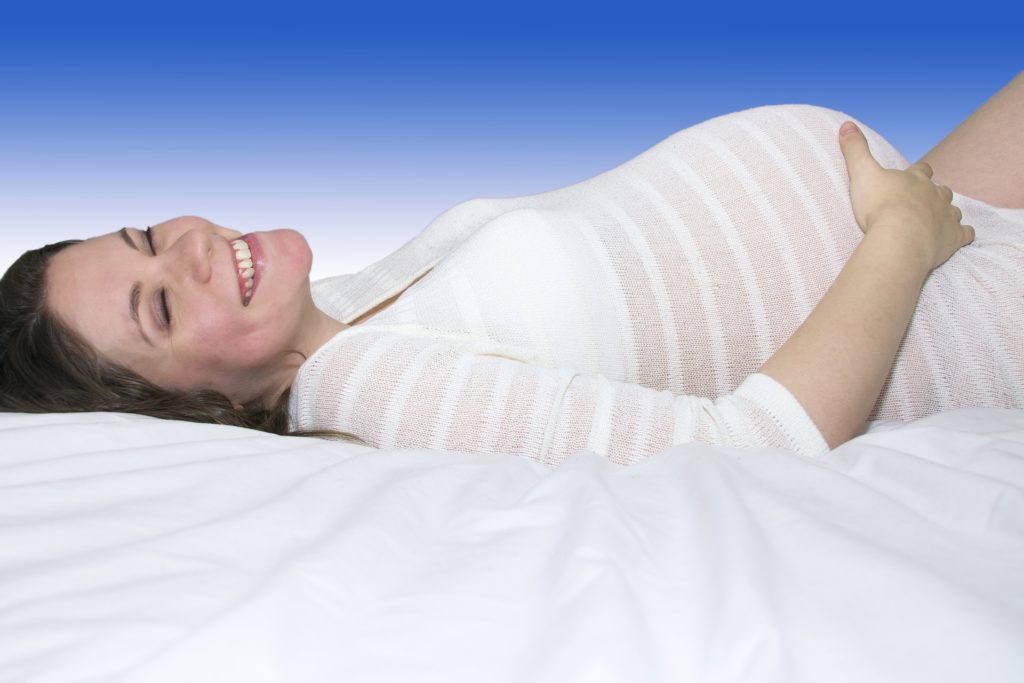Dispelling the Myth of Avoiding First Trimester Massage
Mary Lou Soto, Licenced Masssage Therapist Sep 19, 2013 Posted at Elements Massage.
Some massage therapists are taught to avoid massaging a pregnant client during the first trimester because it is believed to be dangerous. There are thoughts that massage could be disruptive to the baby’s development, concerns that it could harm the placenta, or that women experiencing fatigue, nausea, or ambivalence about their pregnancy will find massage uncomfortable in some way.
Many are concerned about causing or being associated with a miscarriage that might occur, since the first trimester is known to be the time of greatest risk for miscarriage. All of these concerns are unfounded.
The first trimester is a time of great changes on many levels, all the more reason for receiving nurturing touch to help a mother integrate the changes that are occurring. There is no research that indicates that massage has caused toxic overload in a pregnant person thereby miscarriage. Therapists are aware that massage can stimulate circulation and help flush metabolic waste into the circulatory system. Acknowledging this effect, many therapists are trained to work less intensely, encourage clients to drink water and inform about soreness.
Miscarriage is extremely common during the 1st trimester, yet it occurs whether women are massaged or not. Massage has never been clearly implicated legally or scientifically as a cause of miscarriage. In the majority of cases, miscarriage occurs because the fetus is nonviable. Touch to the abdomen , unless intentionally harmful, does not hurt the baby or the mother. The uterus during the first trimester is low in the pelvis and is not palpable without deep abdominal pressure which is generally contraindicated during pregnancy. Instead, nurturing touch to the abdomen can be extremely relaxing for the mother, and most women feel that the baby is responding in a positive manner if she or he wakes up and starts moving during a belly rub.
While miscarriages do occur frequently in the first trimester, it is rarely a reason to avoid massage. It is appropriate to use precautions if a mother has a history of 3 or more consecutive miscarriages in the first trimester or is currently having miscarriage risks. In this case, while a full body (Type 1) deep massage might be contraindicated, nurturing energy work and soothing, gentle massage can still be beneficial.
Massage to the legs, feet and belly during the first trimester does not cause miscarriage. There are acupressure points in the lower legs and feet that are contraindicated for acupressure and acupuncture, but general massage to these acupressure points areas will not stimulate them similarly.

The first trimester is a time when a woman often experiences enormous fatigue, confusing emotions and a flood of new sensations as her body surges with hormones. Massage can actually be a wonderful tool to help the expectant mother to feel more unified and grounded in her experience of pregnancy. Acupressure points, energy work and massage can help decrease a woman’s nausea and increase her sense of grounding and vitality. Massage can support the woman’s physiology, improving hormonal function and supporting the healthy development of placenta and baby. Bodywork is not a cause of placental dysfunctions or fetal anomalies.
Massage in the first trimester should not generally be exceptionally deep and stimulating if it is a first time. It should not be avoided due to nausea as many studies indicate massage can help to reduce nausea. Usually, massage during the first trimester can help decrease anxiety and help a woman relax, have focused time to process the fact that she is pregnant, and offer her a wonderful way to enter into her new pregnancy.
First trimester bodywork has some other considerations to keep in mind. Deep abdominal work is contraindicated. But for the majority of women, nurturing touch and manual therapy during the first trimester can offer wonderful musculoskeletal and circulatory benefits as well as comfort, reassurance, and relaxation that should not be missed.
[Taken from “Nurturing Massage for Pregnancy – A Practical Guide to Bodywork for the Perinatal Cycle” by Leslie Stager]
